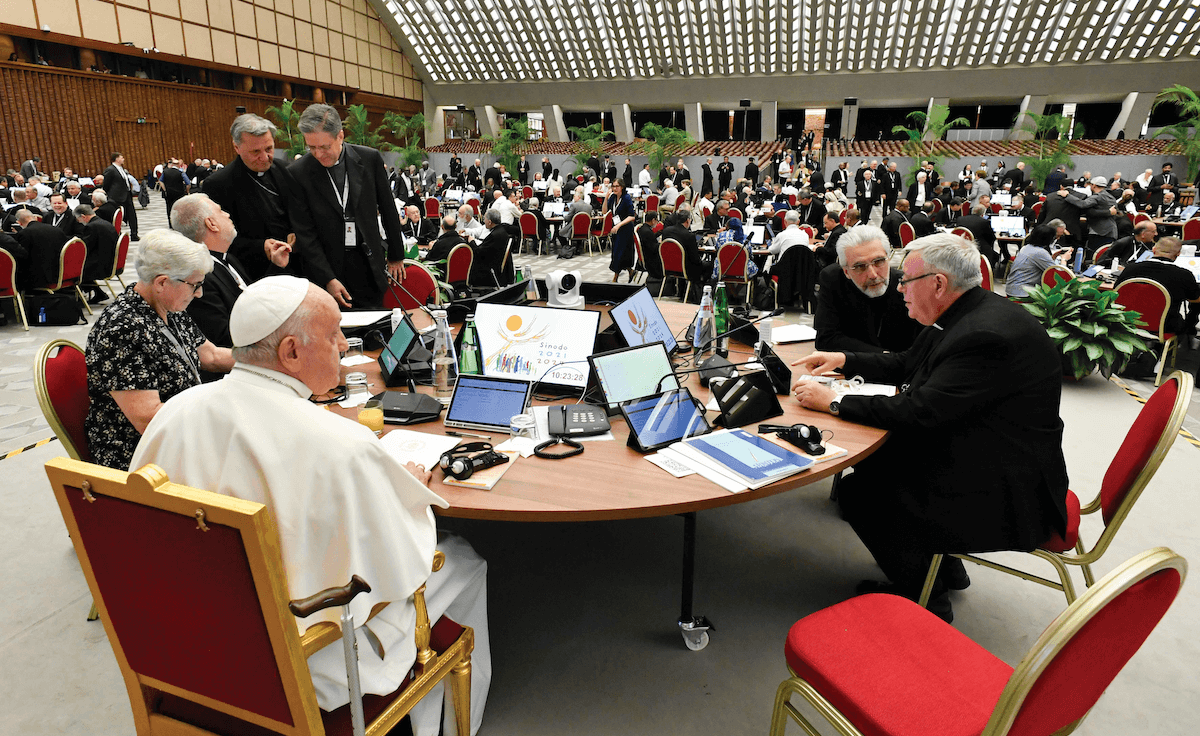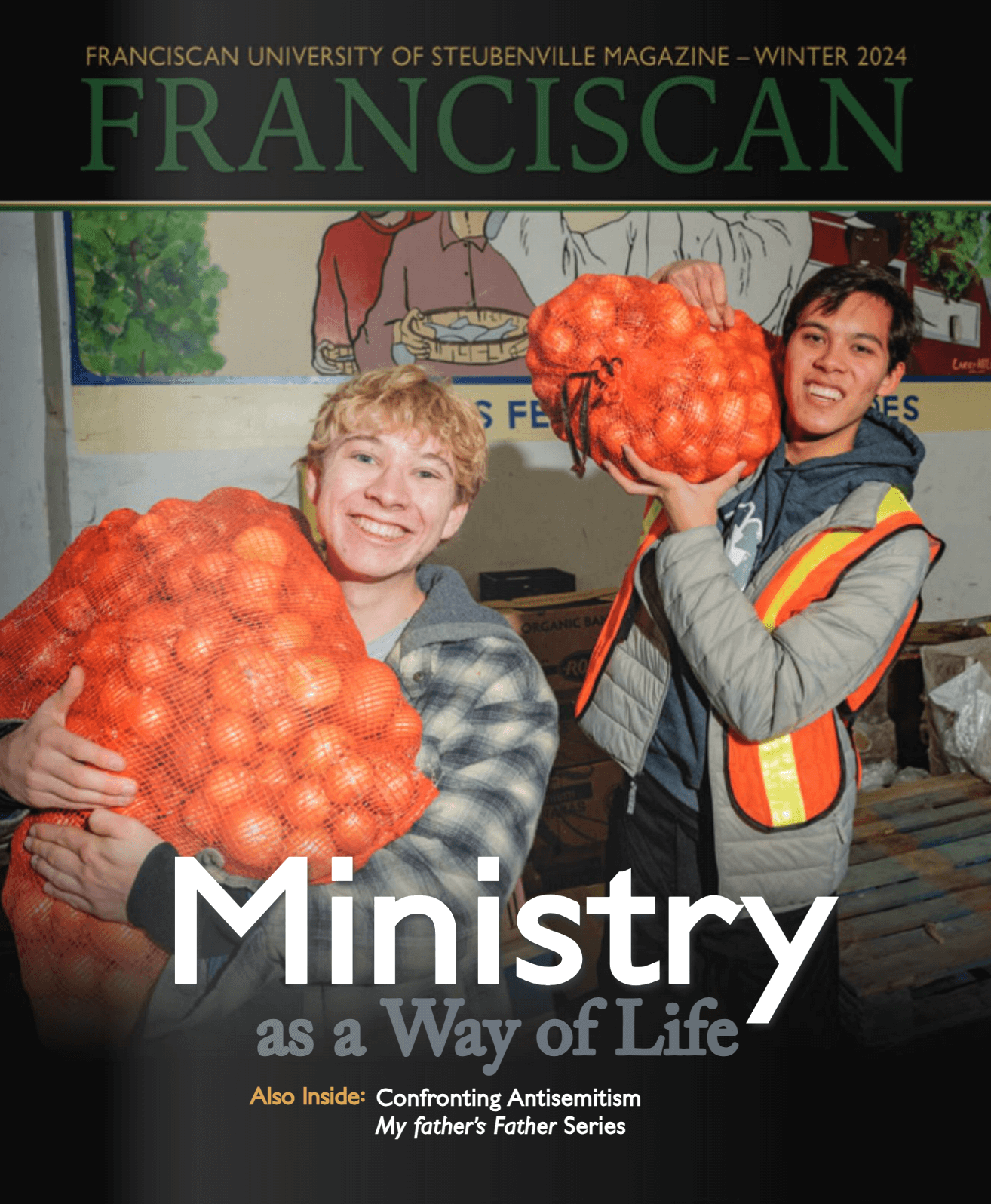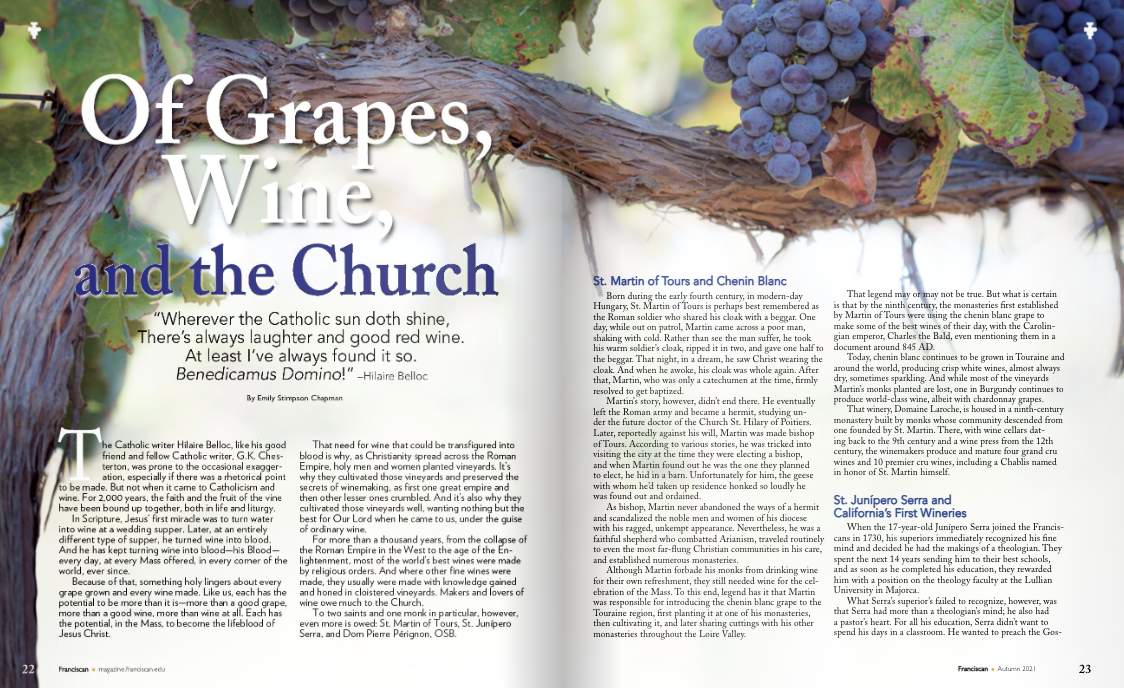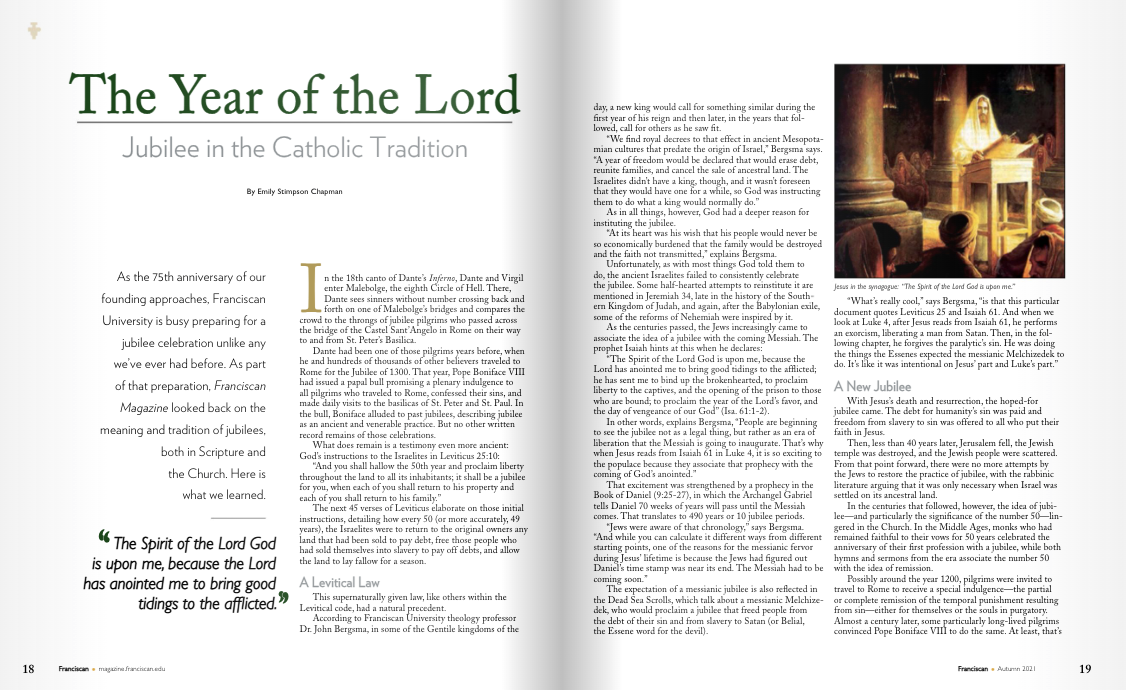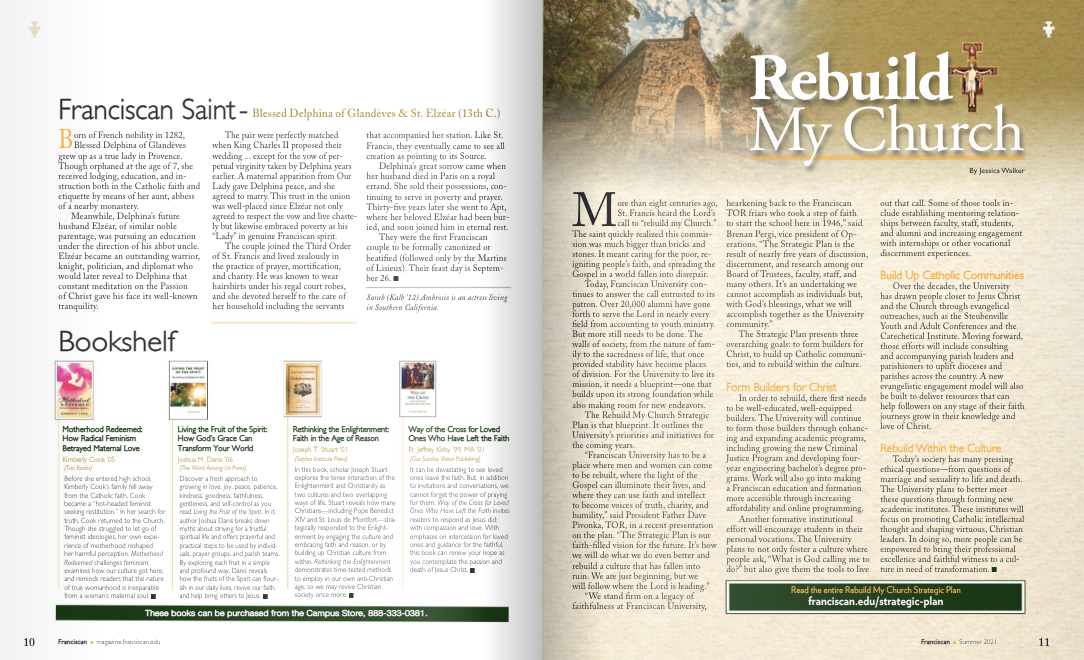As the Synod on Synodality drew to a close in October, the flurry of news reports, opinion columns, social media posts, and podcasts left many Catholics confused about its purpose and outcome.
Curtis Martin MA ’93, founder of the Fellowship of Catholic University Students (FOCUS), says those who got most of their information from the secular media, which doesn’t tend to reflect a full understanding of the Church, should not have been surprised if they were perplexed. By contrast, those who stuck to solid Catholic news sources and remained involved in their faith and interested in its teachings, practices, and devotions were less likely to have been swept up in the synod politics.
Martin, who was a delegate to the 2013 Synod on the New Evangelization, says there is an important place in the Church for this synod’s proposition of listening about listening.
“Jesus did this all the time. He was sitting, eating with sinners and tax collectors. He hung out with Matthew and his friends. He spent time with the woman at the well who wasn’t even Jewish. He welcomed a prostitute who anointed his feet. Listening to people we don’t agree with and who are not a part of the Church yet is not new to Catholicism.”
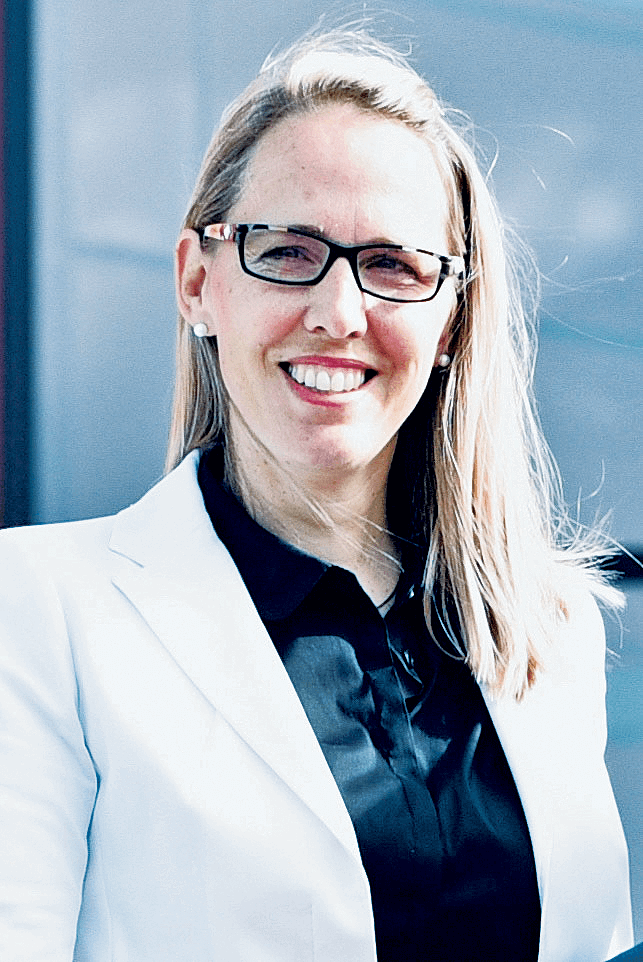
Dr. Katharina Westerhorstmann
Indeed, Dr. Katharina Westerhorstmann, professor of theology at Franciscan University, says the synod appears to have been effective in this respect. Although many expressed concerns that certain pressure groups would try to push through their agendas, those who were present have indicated the listening process was successful, providing space for prayer and silence and bridging gaps between people and different positions.
“Synodality,” she says, “means nothing more than walking together. This is an ancient image in the Church: The Church as community is on a pilgrimage. It means not being on one’s own in living the faith, listening to one another, and walking together in the hand of God and listening to him. It would, therefore, be applicable to our parishes and local communities.”
Nevertheless, many Catholics worry that in listening to certain other voices as part of the synod, the Church will not ultimately try to lead them to the truth. Martin says his response to this would be to seek to recognize the best possible motive for what Pope Francis is attempting to do with the synod.
“He is trying to re-engage the world. C.S. Lewis said the Church’s relationship to the world is not a young man trying to court a young woman. It’s about an ex-husband re-courting his ex-wife. In the best possible read, we see that the Church is asking us to re-engage the world and not start with the end. You don’t go on a first date and say, ‘Consider this an interview for marriage.’ You get to know the person.”
Martin says that means the Church’s conversation with those in the world does not start with telling them they are wrong.
“We will have to get there, but people want to jump to that end.”
To illustrate, Martin says he has told FOCUS missionaries it’s OK to hang out with people who are in habitual mortal sin.
“Don’t commit sins with them, but you need to get out and love people where they are so you can lead them to where we want them to be.”
Dr. Deborah Savage, professor of theology at Franciscan, saw the synod’s task as exploring the ways in which the received teaching of the Church might be promulgated to reach the contemporary person. However, she says the synthesis report published afterward pointed mostly to discussions about further conversations.
“I don’t know that the synod accomplished much in the way of pastoral meaning or significance. It seems like what it accomplished was an agreement to talk further.”
Faithful Catholics who are worried about the synod’s efforts to alter Church teaching in such areas as homosexuality and the ordination of women should know this is not something that could be done easily and readily through a simple declaration, she says.
“Since the received tradition of the Church is grounded in particular assumptions about the meaning of the human person—who he is and what he is for—it would be a rather monumental undertaking to question and alter those assumptions, grounded as they are in centuries of reflection on Scripture and tradition. John Henry Newman established long ago that an authentic development of doctrine builds on what has come before. Church teaching reflects the inner dynamism of any living reality—so it makes perfect sense that it would develop as she continues her movement toward God. But any step we take must be in continuity with the past in the Church’s teaching, not a radical discontinuity. There simply cannot be a wholesale rupture or shedding of the received tradition.”
Furthermore, she says, “The Synod of Bishops cannot summarily jettison Church teaching on marriage without simultaneously leaving behind her understanding of the human person.” For example, she continues, “It would take a very clever sleight of hand to declare that gay marriage is a reality we can affirm because, by definition, marriage is total union, body and soul, of a man and woman, something that is simply impossible for the same-sex couple.”
Catholic teaching on human sexuality, Savage adds, is not isolated from the rest of her teaching. To relinquish it would compromise other doctrines—sacramental theology, ecclesiology, the teaching on nature and grace.
“The Church’s teaching is a tightly woven fabric. Pull on one string and eventually the whole fabric begins to unravel.”
As Catholics digest the 2023 synod and await the next session in 2024, Savage says they should have faith the Holy Spirit remains our guide.
Asked if she saw evidence during the 2023 synod that the Holy Spirit continues to guide the Church, Westerhorstmann says she observed some of the fruits of the Holy Spirit mentioned in St. Paul’s letter to the Galatians, such as peace, joy, and kindness, among the participants.
“I trust the Lord who guides the Church through his Holy Spirit. Whether the method used at this year’s synod is the best we could imagine to be able to listen to the Holy Spirit, and to discern the spirits, this would be something that needs further discussion and clarification.”
Westerhorstmann says prayer is essential but that living the faith faithfully is another important response.
“The lived faith of the ‘average Catholic’ has an immediate influence on the entire Church.”
She also encourages Catholics who feel called to contribute to the synodal process to write their local bishops or to send letters to Roman dicasteries with petitions or suggestions.
“Charisms are given to those in office but also to those with an open heart who love the Church.”
Martin says he calms fears like those that have arisen during the synod by telling people to keep their eyes on Christ.
“We’ve been in the habit of looking at the Church and somewhere in the Church is Jesus, but if we look at Jesus, then we will see the Church clearly … The Church is still strong though we live in a confusing time. But the confusion is not the news. The news is there are saints in the Church, and they’re everywhere.”
Pope Shares “Worries” About the Church in Germany
Franciscan theology professor receives personal response to her concerns.
Following her own advice to Catholics to express their concerns about the Church to its leaders (see “Thinking About the Synod,” page 43), Dr. Katharina Westerhorstmann, together with three colleagues, recently appealed directly to Pope Francis, who surprised them with a prompt, personal response.
The Franciscan University theology professor, along with philosopher Hanna-Barbara Gerl-Falkovitz, theology professor Marianne Schlosser, and journalist Dorothea Schmidt had resigned in February from the German “Synodal Way,” an assembly of German bishops and lay people. In objecting to the direction and conduct of the gathering, the four said in a statement that the Synodal Way was “casting doubt on central Catholic doctrines and beliefs” and that the organizers had disregarded warnings from the Vatican and used tactics not in keeping with synodality.
They then followed up with a November 6 letter to Pope Francis out of concerns about ongoing developments in the Church in Germany. The letter was hand- delivered to the Vatican November 8, and they received a response that dates from November 10.
“You have come to me with your concerns about the recent developments in the Church in Germany,” the Pope’s letter stated, according to Westerhorstmann’s translation. “I, too, share these worries about the numerous and concrete steps that have now been taken by large parts of this local Church which threaten to deviate further and further from the common path of the universal Church.”
Pope Francis went on to cite the formation of the “Synodal Committee” (Synodaler Ausschuss) that would establish a new advisory and decision-making council (Synodaler Rat), which, he said, “cannot be reconciled with the sacramental structure of the Catholic Church.”
“For this reason,” he continued, “the establishment of this council was prohibited by the Holy See in a letter approved by me in specific form [in forma specifica] on January 16, 2023.”
In a subsequent communication, the pope agreed in writing that his letter could be publicly shared. It was released to the press in Germany November 21.
Westerhorstmann said she and her colleagues were very surprised at the promptness of the pope’s response to their letter and also were deeply gratified to have received it.
“I am grateful for the pope’s clarity in his letter,” Westerhorstmann said, “especially regarding the sacramental structure of the Church. I’m convinced the clarity of his words will help not just the Church in Germany, but the entire Church to keep listening to the Holy Spirit within the communion of the universal Church. It can also remind the majority of the German bishops of their oath to remain in union with the successor of Peter.”
Asked if she saw similarities between her experience with the German Synodal Way and what happened at the recent Synod on Synodality, Westerhorstmann said, “The atmosphere at the synod in Rome was, from what I’ve heard, very different. The general assembly in Germany was focused on a decision-making process to foster changes regarding the hierarchical structure of the Church as well as to ‘adapt’ certain doctrines to what was called ‘the signs of the times.’ There was no agreement, though, about what the ‘signs of the times’ are, who discerns them and what would be a valid argument to suggest a reformulation (or even a change) of a current teaching of the Church.”
As for whether the German Synodal Path had an influence on the Synodal Process, Westerhorstmann said it seems obvious to her that it did. But she added, “I’m not sure in which direction the influence can be clearly determined: whether as a catalyst or, as background on what to avoid, for example, parliamentarism and too much Church politics.”
Judy Roberts writes from Graytown, Ohio.



